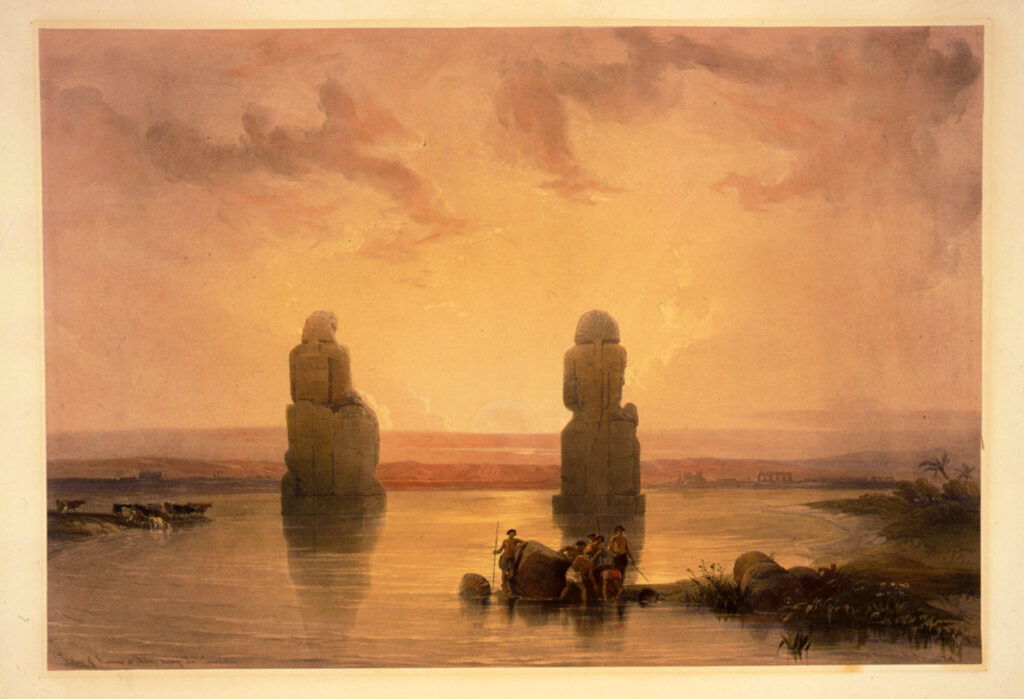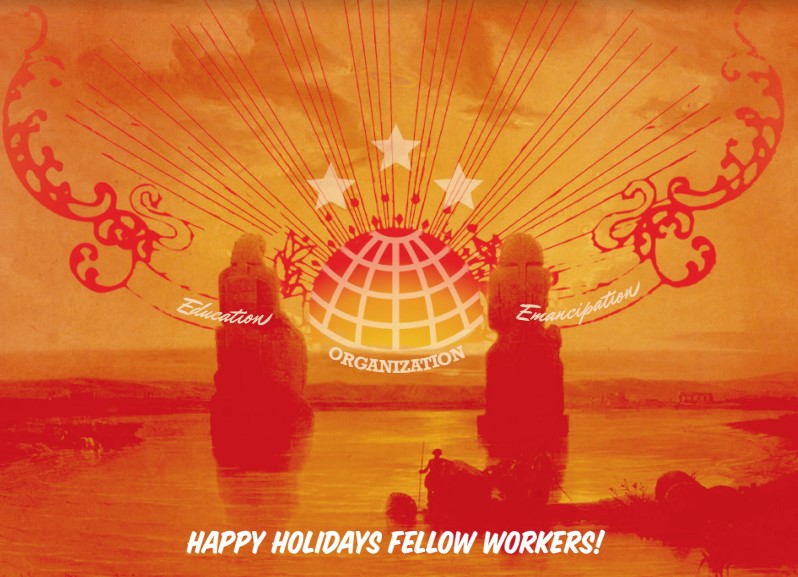By x354189
Happy Holidays Fellow Workers!
Many working folks “will be preparing Thanksgiving dinner this week with goods they obtained from a food bank, while performing the ritual ‘What I’m thankful for” pre-meal, pseudo-prayer over Zoom’ this holiday.”
To share what I am thankful for, here is a digital version of the first issue of an IWW publication. It is the Industrial Union Bulletin: Volume 1, Issue 1.
The IWW’s principal publication was arguably the beginning of a history of working class education unparalleled in any latitude or longitude. A recent split divided the IWW into two camps, and the IWW of which we know today was elected: Trautmann (Secretary-Treasurer), St. John (Organizer), and Edwards (Editor).
It is a fascinating read, a lens with which to view the rays of organization; revealing a gamut of color, invisible without refraction through the jewel. Evidence of a historical continuum, an organization that has (arguably) laid the widest of foundations for the global working class. The path behind us which led us to this point in history is nothing to dismiss. With proper elucidation and study, it is as humbling as the Colossi of Memnon.

the Colossi of Memnon
These colossal idols were erected in Egypt and peered upon Egyptian slaves and Roman Emperors as equals. Memnon was the “resolute” king of Æthiopia who led armies from Africa into Troy in the Trojan War. Zeus and the Greek Gods, recognizing the equality and harboring love for both African and Mediterranean peoples, gave both Achilles and Memnon divine armor from Hephaestus before the battle of Troy. When Achilles had slain Memnon, the gods filled rivers with his collected blood, and the rest of the story is lost. To the victor goes the spoils of war. Because the original historical work by Arctinus of Miletus only survives in fragments, most of what is known about Memnon comes from post-Homeric Greek and Roman writers.
While doing the important work of editing the Industrial Worker for a modern audience, we have heard a clarion call from the past; a siren beckoning our attention. Our past is rich with precedent, insight, and above all — a record of it all. Recent efforts to digitalize IWW archives have made the past even more illuminating. These are our Colossi; the twin towering monuments: Education, and Organization. Let us not forget our previous battles, let us take a thorough examination of present conditions. We must never forget. In this fashion, the IWW will live forever in the memories, histories, and volumes of yesteryear while forging new paths toward emancipation. The greatest gift the IWW gave to the workers of the world was the effective solidarity across all races, genders, and creeds – one union of the global working class, regardless of political party. It was this economic organization which made the IWW so effective – and continues to make it relevant.
When asked by Studs Terkel, Fred Thompson recalls,
“The radical movement waxes and wanes. They jostle each other. We like to grab each other’s members and things like that, sure. But the over-all anti-capitalist movement grows and declines together. They all get bigger at the same time, they all get smaller at the same time. (Laughs.) In general, there was cooperation – not entirely so. The IWW has always tried to avoid being dogmatic, doctrinaire. We don’t ask a guy: what are your political beliefs? We ask ‘em: what kind of work do you do? What industry are you in? We have never prevented any person joining because of his beliefs.“The Communists wanted us to join them in 1920. They had a misapprehension over in Moscow, where they got their orders, that we were a secret underground. Heywood [Big Bill Heywood, a top leader of the IWW] went over and tried to explain to Lenin that we had a great big printing plant in Chicago, where we put out twelve different weeklies and a bunch of magazines and so forth. We had trouble with the Government, but we were certainly not hiding. They knew we were doing these things. (Laughs.)“At the beginning of the 1949 Smith Act trials, FBI director J. Edgar Hoover was disappointed when prosecutors indicted fewer CPUSA members than he had hoped, and – recalling the arrests and convictions of over one hundred IWW leaders in 1917 – complained to the Justice Department, stating, ‘the IWW was crushed and never revived, similar action at this time would have been as effective against the Communist Party.’”
A note on the usage of racial pejorative “coolie” (sic) in the above-linked Volume 1 Issue 1 Industrial Union Bulletin: At the time of this printing (1907), the term “coolie” was not yet frowned upon as a product of colonialism upon working class psychology. The term’s linguistic roots are the Ottoman and Hindustani words for slave, “qul”, “qulī”. The Chinese “kûlì” is closer to “bitter strength”. The Tamil language “kulfi” directly translates into “wages”. The fact that Edwards capitalized East Indian and not “coolie” would be expected for his time, after all, it was only 1924 when the New York Times objected to letters by W.E.B. DuBois insisting on the capitalization of the term Negro in print. Before distributing this objectionable material, on behalf of the Industrial Worker editor(s), I would like to remind readers that this publication does not reflect the official IWW position on this or any other issue unless specified. The history books on the IWW will reflect an organization which was racially integrated from its founding convention in 1905, running counter to the establishment of white supremacist trade unionism espoused by Samuel Gompers and the A.F.L: A revolutionary alternative who went on to organize workers around the globe working as “coolies”; this solidarity extended to ports in the Caribbean, Mexico, Chile, Australia, New Zealand, Germany, and other nations. In fact, it could be argued that the IWW was influential in early South African anti-apartheid struggles.
“In particular, the question of race in worker organizing in South Africa under apartheid would heavily influence the direction of different organizations, with some organizations being explicitly white-only, others predominantly black, and others making attempts at truly multiracial organizing. The IWW had significant experience in multiracial organizing in the United States through its support for the multiracial Brotherhood of Timber Workers, as well as IWW Local 8 in Philadelphia, which organized longshoremen.Cole, Peter; van der Walt, Lucien (January 2011). “Crossing the Color Lines, Crossing the Continents: Comparing the Racial Politics of the IWW in South Africa and the United States, 1905–1925” (PDF). Safundi: The Journal of South African and American Studies. 12(1): 69–96. Retrieved 27 December 2016.
“The celebrated multiracial local, in turn, had strong ties to the Marine Transport Workers Industrial Union (MTWIU), an industrial union which formed a component of the broader IWW. The MTWIU created a point of contact between the continentally-based IWW and radical sailors and dockworkers in Latin America, Europe, Africa, and Asia. South African port cities such as Durban became home to radical syndicalist currents which were strongly integrated into the international socialist and syndicalist movement.”
In our modern vernacular, the term “Coolie” has become synonymous with racialism, and by republishing this original version, we hope to refract the usage of such derogatory slang through the lens of the solidarity of the global working class. A thorough assessment of the modern sting the term carries is summed up in a passage from Lakshmi Gandhi, NPR, in an interview accessible online.
Gandhi, Lakshmi. “A History Of Indentured Labor Gives ‘Coolie’ Its Sting.” NPR, 25 Nov. 2013, www.npr.org/sections/codeswitch/2013/11/25/247166284/a-history-of-indentured-labor-gives-coolie-its-sting.
“In India — in the subcontinent — a ‘coolie’ is someone who carries baggage,” said Bahadur. “And these women sort of carry the baggage of colonialism; the expectations of white men, the expectations of Indian men. Here they have to sort of preserve family, preserve culture.”
As far as American industrial relations, the article sums up the historical context:
“Although the word “coolie” is primarily associated today with the histories of the Caribbean and South America, indentured labor was a widespread reality in mid-19th century America. Companies like the Central Pacific Railroad Company signed laborers to five-year contracts (these laborers, among other things, were instrumental in building the transcontinental railroad and other projects in the Western United States). Due to the fact that the laborers were Asian — 9 out of 10 workers on the railroad were Chinese and the remainder were Irish — and because the workers would labor for low wages and live in substandard living conditions, the word “coolie” became a derogatory code for “Asian” (both East and South) in the United States. The workers were a prime target for criticism by labor leaders, politicians, and ordinary citizens, who believed the foreign laborers were depressing wages and unfairly taking jobs.
The anti-Chinese labor sentiment was so high that in 1862, Abraham Lincoln signed an “anti-coolie” bill that “banned transportation of ‘coolies’ in ships owned by citizens of the United States of America.” Despite the Anti-Coolie Law and the subsequent Chinese Exclusion Act (which passed in 1882 and prohibited Chinese workers from entering the United States), labor leaders and others continued to fear an influx of “coolie labor,” especially after the rise of American imperialism in the late 1800s and the early 1900s.”
Gandhi, Lakshmi. “A History Of Indentured Labor Gives ‘Coolie’ Its Sting.” NPR, 25 Nov. 2013, www.npr.org/sections/codeswitch/2013/11/25/247166284/a-history-of-indentured-labor-gives-coolie-its-sting.
Luckily, we have history on our side there as well. Albert Parsons, Haymarket Martyr, whose survivor in Lucy Parsons would help found the IWW, would testify to Congress during the year 1879, “These two measures are not American or English or German or French, but they belong to a political economy which begins with the idea that “Our country is the world, and our countrymen (sic) are all mankind.”
In conclusion, I will leave some analysis on historical revisionism from the Sojourner Truth Organization,
“In his chapter, “America’s Entrance into World War I,” Foner declares that, “Many anti-war groups were now intensifying their activities to halt America’s entrance into the conflict. But the I.W.W. was not among them.” To substantiate this charge, he quotes an article by the editor of the Industrial Worker, as follows: “I attended a peace meeting the other day at which one of the strongest advocates of antimilitarism was a pudgy parasite given to waving a hand, carrying the two-year wages for a worker in diamonds. I said to myself, ‘I am an anti-militarist because I am an internationalist, but you, damn you, peace or no peace, I am against you.’”http://www.sojournertruth.net/goldenbridge.html
“Every class-conscious worker will applaud this bold statement. Foner cites it as an example of the IWW “relegating the struggle against the war to the background.” Thus the very heart of a Leninist position on war, namely that imperialist war can only be halted by the waging of class war, is dismissed as one more evidence of “serious flaws in its ideology.”
“Foner’s supporters claim that he stands in the tradition of Leninism. If this claim is true, then one could well argue that, in his efforts to build a worldwide revolutionary organization, Lenin’s greatest mistake was his attempt to enroll the IWW in the Communist International rather than the other way around.”
Please do enjoy reading The Industrial Union Bulletin, Volume 1 Number1. The first line of type reminds us;
Momentary Phenomena Must Not Blind Us to Our Ultimate Aim…

